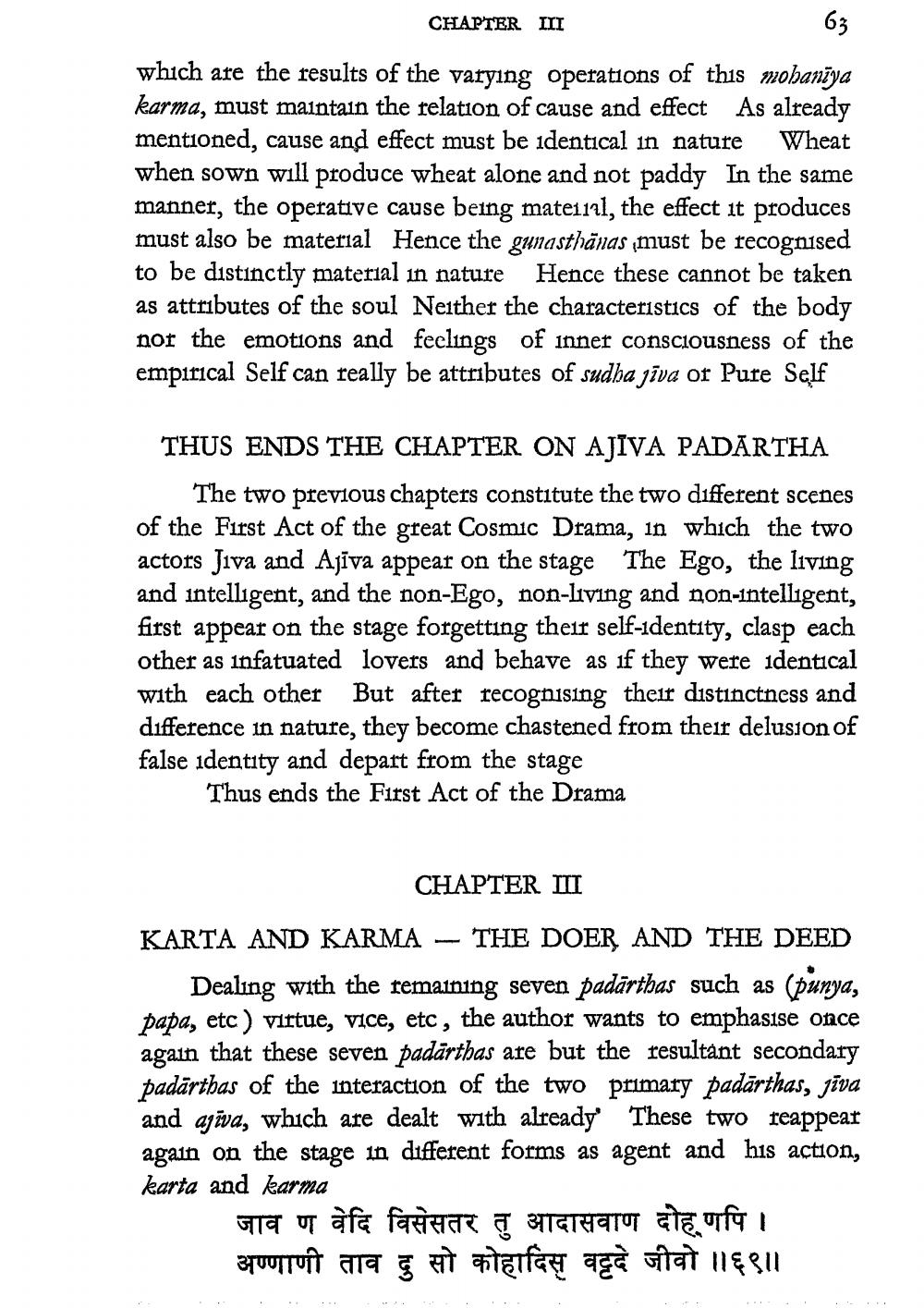________________
CHAPTER III
which are the results of the varying operations of this mohanīya karma, must maintain the relation of cause and effect As already mentioned, cause and effect must be identical in nature Wheat when sown will produce wheat alone and not paddy In the same manner, the operative cause being mate112l, the effect it produces must also be material Hence the gunasthānas must be recognised to be distinctly material in nature Hence these cannot be taken as attributes of the soul Neither the characteristics of the body nor the emotions and feelings of inner consciousness of the empirical Self can really be attributes of sudha jīva or Pure Self
THUS ENDS THE CHAPTER ON AJIVA PADĀRTHA
The two previous chapters constitute the two different scenes of the First Act of the great Cosmic Drama, in which the two actors Jiva and Ajīva appear on the stage The Ego, the living and intelligent, and the non-Ego, non-living and non-intelligent, first appear on the stage forgetting their self-identity, clasp each other as infatuated lovers and behave as if they were identical with each other But after recognising their distinctness and difference in nature, they become chastened from their delusion of false identity and depart from the stage
Thus ends the First Act of the Drama
CHAPTER III
KARTA AND KARMA – THE DOER AND THE DEED
Dealing with the remaining seven padārthas such as (punya, papa, etc) virtue, vice, etc, the author wants to emphasise once again that these seven padārthas are but the resultant secondary padārthas of the interaction of the two primary padārthas, jīva and ajīva, which are dealt with already' These two reappear again on the stage in different forms as agent and his action, karta and karma
जाव ण वेदि विसेसतर तु आदासवाण दोहणपि । अण्णाणी ताव दु सो कोहादिस वट्टदे जीवो ॥६९॥




